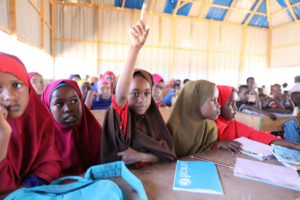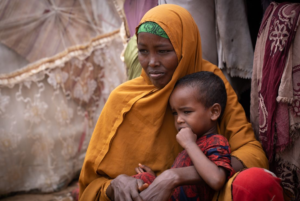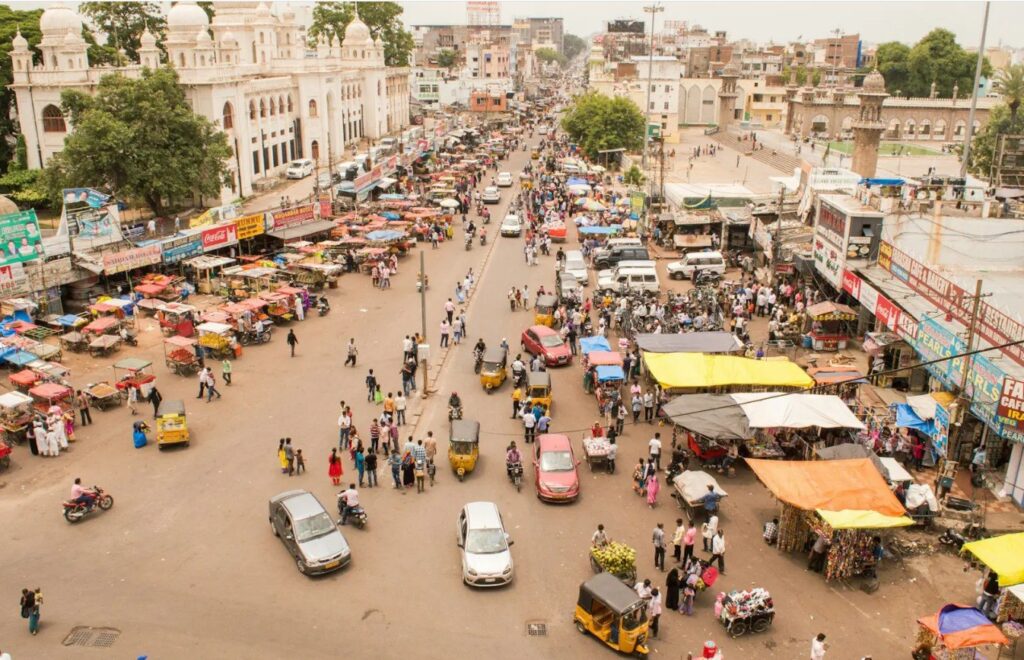Somalia banking sector is quietly undergoing one of the most ambitious financial transformations in the Horn of Africa.
Over the past decade, the country has made significant strides in rebuilding its financial institutions, embracing digital innovation, and introducing long-awaited regulatory reforms.
Yet, despite this momentum, systemic challenges—ranging from liquidity constraints and dollarisation to governance gaps—continue to threaten the sector’s fragile progress.
CBS Efforts to Build Somalia Banking Sector
As the Central Bank of Somalia (CBS) intensifies its regulatory efforts and new legislation reshapes the financial landscape, the country faces a critical inflection point.
Can Somalia build a resilient, inclusive banking system that serves its diverse population?
Or will structural weaknesses erode public trust in a sector that desperately needs it?
Growth of Somalia Financial Institutions
Somalia financial sector has expanded rapidly in recent years.
Today, 13 licensed banks operate across the country, including major players such as:
- International Bank of Somalia (IBS)
- Premier Bank
- Salaam Somali Bank
- Dahabshiil International Bank
- Amal Bank
In addition to formal banks, the country hosts seven licensed money transfer businesses, commonly known as hawalas, which play a vital role in facilitating remittances.
These informal networks are deeply embedded in Somali society and remain the primary financial lifeline for millions.
Three licensed mobile payment service providers are also active, linked to the largest of Somalia’s seven mobile network operators.
Most financial services are delivered through informal conglomerates that combine banking, remittance, mobile payments, and telecom services under one umbrella.
Mobile Money Dominance and Financial Access
Somalia’s financial ecosystem is increasingly mobile-driven.
According to the World Bank and U.S. International Trade Administration (ITA):
- 85% of adults own a mobile phone
- 82% use mobile phones for financial transactions
- Less than 9% of adults have a formal bank account
- Only 26% of households have access to loans—just 2% from banks, with the rest from merchants and traders
Remittances from the Somali diaspora contribute nearly $2 billion annually, accounting for 30% of GDP. Much of this flows through mobile platforms like Hormuud’s EVC Plus, which has become a staple of daily life, especially in urban centers like Mogadishu.
Despite the digital boom, access to formal financial services remains limited—particularly in rural, nomadic, and displaced communities.
Women and pastoralists are among the most financially excluded groups.
Liquidity Constraints and Banking Challenges
While Somalia banking sector is expanding, many institutions struggle with liquidity management.
Banks possess liquid assets but face limited investment channels, especially under Islamic banking models, which restrict interest-based lending.
The Central Bank of Somalia has introduced macro-prudential regulations, including:
- Capital adequacy ratios
- Liquidity coverage requirements
- Standardized reporting protocols
However, the absence of a deposit insurance scheme continues to undermine depositor confidence. Without protection mechanisms, many Somalis prefer to store savings in cash or mobile wallets, bypassing formal banks altogether.
The Dollarisation Challenge
One of Somalia’s most persistent economic challenges is its dependence on the U.S. dollar.
Since the collapse of the Somali shilling in the 1990s, the dollar has become the de facto currency for daily transactions.
While this has helped stabilize prices, it severely limits the ability of Central Bank of Somalia to conduct effective monetary policy and exposes the economy to external shocks.
To address this, the CBS has proposed a phased reintroduction of the Somali shilling, starting with low-denomination notes under a currency board arrangement backed by foreign reserves. However, this initiative requires:
- Strong political coordination
- Public trust in the currency
- Logistical infrastructure for nationwide rollout
Legislative Reform and Regulatory Expansion
Somalia’s parliament is currently reviewing key financial legislation, including:
- Revised Central Bank Act
- Financial Institutions Law
- National Payment System Act
- Insurance Law
These laws aim to modernize Somalia financial sector by enhancing supervisory independence, consumer protection, and sectoral diversification.
The CBS has also made progress in AML/CFT compliance, aligning Somalia’s framework with international standards through:
- National risk assessments
- Updated anti-money laundering guidelines
- Licensing of all commercial banks and mobile money operators
These reforms are essential for restoring correspondent banking relationships and facilitating international transactions, especially for remittance operators.
Digital Transformation: A New Era for Somali Finance
Perhaps the most promising development in Somalia’s financial journey is its digital transformation. Mobile money usage is nearly universal, with over 70% of adults relying on it for everyday transactions—from utility bills to market purchases.
In 2021, Somalia launched its first real-time National Payment System (NPS), connecting all banks for interbank transfers.
Within its first year, the system processed over $1 billion in transactions.
Additional innovations underway include:
- National QR code standard
- Interoperable mobile banking platforms
- SWITCH system integrating ATMs and point-of-sale terminals
The emerging National ID system is also being integrated with Somalia financial sector to enable electronic Know-Your-Customer (e-KYC) protocols, which will enhance inclusion and regulatory compliance.
Persistent Challenges in Somalia Banking Sector
Despite these reforms, several systemic issues remain:
- Governance gaps: Weak oversight and internal controls hinder sustainable growth
- Trust deficit: Lack of deposit protection discourages formal savings
- Rural exclusion: Banking services are concentrated in urban centers
- Dollar dependency: Limits monetary policy and access to local-currency credit
Policy Recommendations for Inclusive Financial Reform
To build a stable and inclusive banking system, Somalia must pursue bold policy actions:
- Establish Deposit Insurance
Introduce a basic protection mechanism to safeguard depositors and restore trust in formal banking. - Strengthen Prudential Regulation
Enhance CBS surveillance, enforce regular audits, and penalize institutions that breach consumer trust. - Accelerate Digital Integration
Expand interoperability between banks and MMOs, roll out e-KYC via national ID, and invest in digital literacy. - Support Somali Shilling Reintroduction
Launch a phased currency rollout backed by public education and a currency board framework. - Enable Credit Infrastructure
Develop credit bureaus, collateral registries, and public guarantees to improve access to finance for SMEs and households.
Banking as a Pillar of Somalia’s Economic Recovery
Somalia banking sector is on the cusp of transformation.
With the right mix of regulatory reform, digital innovation, and inclusive policy, it can evolve into a cornerstone of national recovery—offering not just financial services, but trust, dignity, and opportunity in a country long defined by their absence.
Source: African Business








